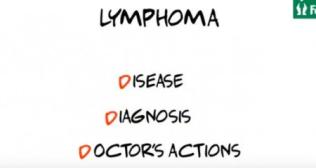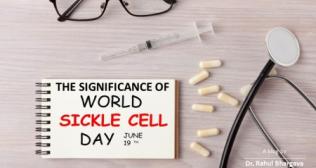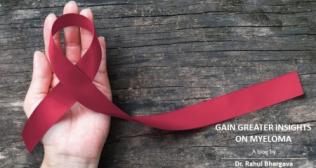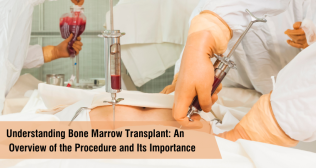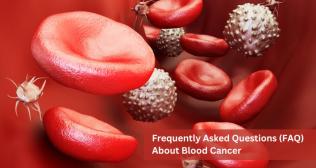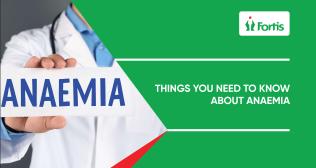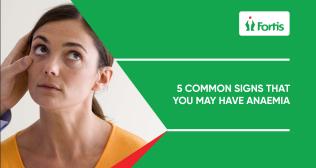
Best CAR T Cell Therapy in Mumbai
Best CAR T Cell Therapy in Mumbai
Advances in cancer treatment are not only improving patient outcomes, but also offering hope to patients who previously had few or no treatment options. One such innovative treatment is the chimeric antigen receptor (CAR) T-cell therapy, a type of immunotherapy that has proven remarkably effective in treating various haematological cancers (blood cancers), such as leukaemia, lymphoma and multiple myeloma. This approach uses genetically altered T-cells to recognise and attack cancer cells, perhaps, without harming the healthy cells nearby. Fortis Hospital, Mulund, offers cutting-edge treatments to patients who might benefit from this promising area of cancer treatment.
Why choose Fortis Hospital, Mulund, for CAR T-cell Therapy?
The CAR T-cell Therapy Program at Fortis Hospital, Mulund, is one of a few such programs at select medical facilities in India, with experts extensively trained to manage this groundbreaking cancer treatment. Our specialists are at the forefront of immunotherapy innovation. This means patients receiving treatment at our centre will have access to the most advanced immunotherapy options for even the most complex cases.
Read on to learn more about CAR T-cell therapy, including how it works, who can have it, the benefits and risks, as well as the outlook for this revolutionary treatment.
What is CAR T-cell therapy?
CAR T-cell therapy is a form of immunotherapy that activates a patient’s own immune system to fight off cancer. This personalised treatment involves the use of genetically modified T-cells (T lymphocytes), a type of white blood cell in your immune system that plays many crucial roles in the body’s fight against infections, to detect and kill certain blood cancers. CAR T-cell therapy may be an option when blood cancer relapses or other treatments are no longer effective. This treatment has been successful in eliminating all signs of cancer in some cases, making it one of the most promising cancer treatments.
How does CAR T-cell therapy work?
In the CAR T-cell therapy, T-cells are separated and collected from the patient’s blood through a process called apheresis. In the laboratory, scientists genetically modify the collected T-cells, turning them into CAR T-cells to recognise and attack cancer cells. This process involves adding a lab-made gene to T-cells to produce proteins (special receptors) called chimeric antigen receptors or CARs, which can recognise a specific antigen on the surface of cancer cells. The modified T-cells (CAR T-cells) are then multiplied in the lab and infused back into the patient’s body. As CAR T-cells reach the bloodstream, they find and attack the cancer cells. These CAR T-cells can remain in the patient’s body for months, identifying and destroying cancer cells.
How is CAR T-cell therapy given?
If you’re deemed fit for CAR T-cell therapy and scheduled to get this treatment at Fortis Hospital, Mulund, you will go through a series of tests and appointments before and after the treatment.
To get this therapy, you will undergo a process, which may take several weeks:
- Firstly, T-cells or white blood cells are collected from your blood with the help of a tube inserted into a vein in your arm – this procedure is called leukapheresis, which may take 2-3 hours.
- Next, your T-cells are quickly transported to a laboratory and then modified into CAR-T-cells by adding a gene. This process may take 2-3 weeks.
- A few days before the infusion, you may be given chemotherapy or radiation therapy, depending on your situation – while the new T-cells (CAR T-cells) are being grown and multiplied in the lab. These treatments aim to stabilise the disease and give the engineered T-cells a better chance to activate and fight cancer.
- CAR T-cells are infused back into your bloodstream via an intravenous line (IV). The CAR T-cell infusion procedure usually takes around 15-30 minutes and is done in a hospital setting.
- After infusion, CAR T-cells will continue to multiply in number, detecting and attacking cancer cells in your body.
- Once you’ve received the therapy, you will be closely monitored by the care team for any possible side effects and provided treatment, if required.
- You may need to stay in the hospital for at least 7-10 days, depending on your condition. However, hospital stays may vary for each patient.
After CAR T-cell therapy, you may need ongoing care for months to years. This is crucial for managing side effects, monitoring for recurrence, and for supporting overall health and well-being.
What conditions can be treated with CAR T-cell therapy?
CAR T-cell therapy is currently used to treat some types of blood cancers that haven’t responded to other treatments, such as:
- B-cell precursor acute lymphoblastic leukaemia (ALL), in a relapsed setting
- Any B-cell lymphoma in a relapsed setting
- Multiple myeloma
Research is being done to see whether CAR T-cell therapy can also be used to treat many other types of cancers and non-cancerous conditions.
Can anyone with these conditions get CAR T-cell therapy?
Unfortunately, not. CAR T-cell therapy is only being used as a treatment option for people who have relapsed or refractory disease.
At Fortis Hospital, Mulund, our doctors will assess your specific condition to determine if CAR T-cell therapy is the most appropriate next step for you.
This evaluation involves carefully reviewing your medical history, previous treatment responses, your current health status, etc. Our doctors will discuss with you whether your cancer type has the right markers for CAR T-cell treatment and if this therapy is the best choice for you.
What are the benefits of CAR T-cell therapy?
Some of the benefits of CAR T-cell therapy are:
- It can effectively treat or cure some forms of blood cancer when other treatments are not effective, delivering durable remissions.
- It is a personalised approach, using the patient’s own T-cells
- It improves a patient’s quality of life by efficiently targeting the cancer cells
Researchers and scientists are actively exploring ways to improve the safety and efficacy of this innovative therapy, as well as to expand its use in solid tumours.
What are the possible side effects of CAR T-cell therapy?
The side effects of this therapy may vary depending on everyone’s unique situation. The two most common side effects are:
- Cytokine release syndrome (CRS), which can cause mild or severe symptoms such as fever, fatigue, low blood pressure, shortness of breath, heart or lung issues in rare cases.
- Neurological problems, which can cause a range of symptoms such as confusion, slurred speech, seizures, tremors, headaches, etc.
Other possible side effects of CAR T-cell therapy include:
- Increased risk of infection and fever due to a weakened immune system
- Allergic reactions
- Fatigue
- Low blood counts
- Increased risk of bruising or bleeding
- Low sodium and potassium levels
What is the outlook for CAR T-cell therapy?
The outlook for CAR T-cell therapy is promising, particularly in treating haematological cancers. The therapy has been effective in treating some hard-to-treat blood cancers, leading to long-term remission or even cure, in some cases, and helping people live longer.
However, it may be noted that CAR T-cell therapy is still a new treatment, and doctors are monitoring patients to discover any long-term impacts, in terms of response, side effects, and survival, as they gain more experience with this therapy. Several studies are being conducted to determine if this therapy can be used to treat other cancer types, as well as infectious and autoimmune diseases.
Categories
Clear allMeet the doctor

- Haematology | Haematology | Paediatric Haematology and BMT
-
14 Years
-
2000
 Available at 1 different locations
Available at 1 different locations









